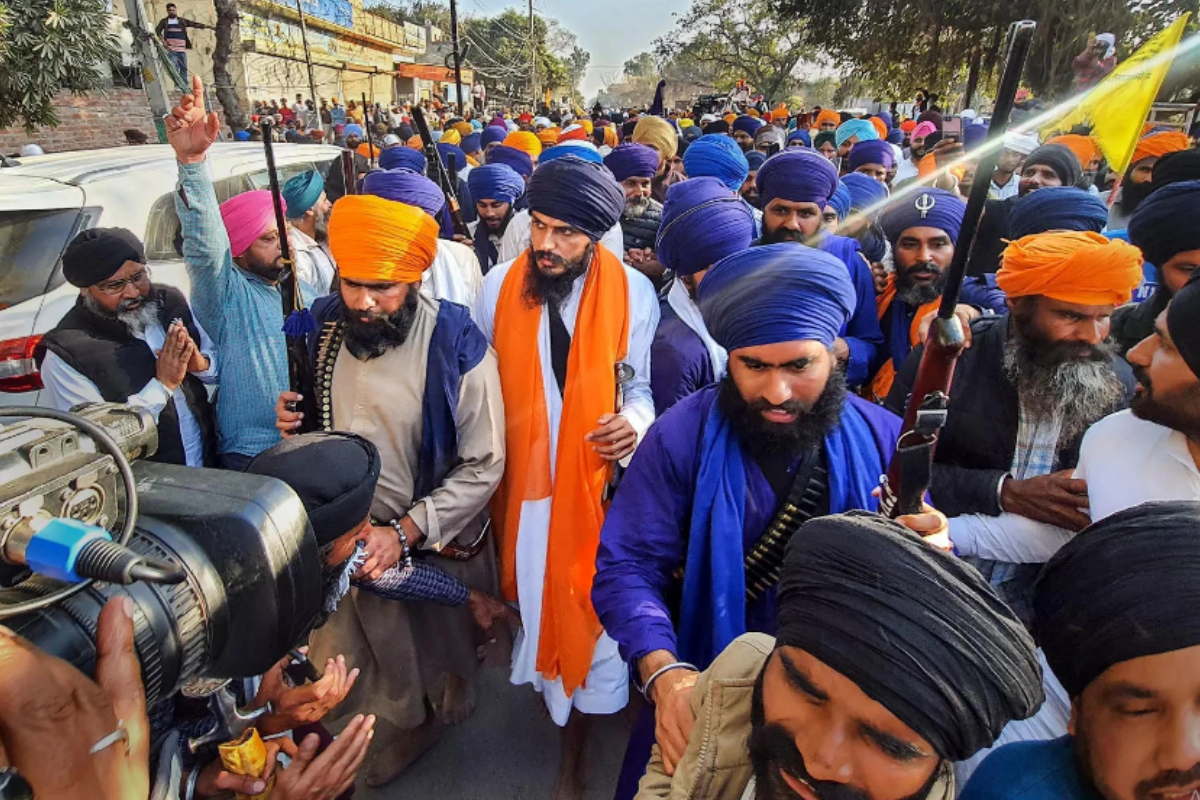- Police hunt for a fugitive Sikh separatist.
- The Punjab government ordered a 24-hour internet restriction as authorities launched an operation.
- Punjab police have justified the internet shutdown as a method of maintaining law and order.
Indian authorities have restricted internet connection for roughly 27 million people in the state of Punjab for the third day in a row, one of the country’s most widespread blackouts in recent years, while police hunt for a fugitive Sikh separatist.
On Saturday, the Punjab government ordered a 24-hour internet restriction as authorities launched an operation to apprehend Amritpal Singh, a popular leader in the separatist Khalistan movement that aspires to establish a sovereign state for Sikhs.
The administration extended the internet shutdown, which affects everyone in the northern Indian state, to midday Monday under a rule that enables the connection to be interrupted to “prevent any incitement to violence and any disturbance of peace and public order.”
Maintaining law and order
Punjab police have justified the internet shutdown as a method of maintaining law and order and preventing the spread of “fake news.”
Hundreds of Singh fans, some brandishing swords and weapons, were seen strolling through the streets of Punjab in dramatic scenes captured on film and shown on local media. In order to maintain peace and order, police and paramilitary personnel were deployed across many districts in the state.
At least 112 people have been arrested, Punjab police reported Sunday, while Singh remains on the run.
For decades, some Sikhs have advocated for the creation of an independent nation called Khalistan in the state of Punjab for adherents of the minority faith. Several lives have been lost in violent battles between adherents of the movement and the Indian government over the years.
The violence peaked in June 1984, when the Indian army attacked the Golden Temple in Amritsar, Sikhism’s holiest shrine, to apprehend armed separatists, killing hundreds and razing much of the structure. The carnage enraged the Sikh community, and Indira Gandhi, who had ordered the operation, was slain by her Sikh bodyguards in the aftermath.
The Khalistan movement is illegal and considered a serious national security danger by the Indian government, yet it retains some support among Sikhs both in India and abroad.
In a statement Sunday, the World Sikh Organization of Canada (WSO) condemned the “draconian” operation to arrest Singh and said it feared “Singh’s detention may be used to orchestrate a false encounter and facilitate his extrajudicial murder.”
Several of Singh’s followers defaced the Indian High Commission in London over the weekend, leading UK authorities to denounce the crime.
Alex Ellis, the British High Commissioner to India, branded the actions “disgraceful” and “totally unacceptable.”
The Indian Ministry of Foreign Affairs said late Sunday that it is “anticipated that the UK government will take immediate action to identify, arrest, and prosecute” individuals involved in the event.
“There is no place in our city for this kind of behaviour. An investigation has been launched by the Met into today’s events,” London mayor Sadiq Khan tweeted Sunday.
India’s internet cuts
Internet outages have become more regular in India, which has over 800 million internet users and is the world’s second biggest digital population, after only China.
According to a report released earlier this month by Access Now, a New York-based advocacy group that analyses internet freedom, India implemented 84 internet shutdowns in 2022, marking the sixth year in a row that the world’s largest democracy of more than 1.3 billion people topped the global list.
The disruptions “impacted the daily lives of millions of people for hundreds of hours,” the report said.
The internet has become a key social and economic lifeline for huge segments of the population, connecting the country’s isolated rural areas with its expanding cities.
The administration has regularly attempted to justify limiting internet access by citing public safety concerns about mob violence. Yet, critics argue the shutdowns are just another blow to the country’s commitment to free expression and information access.
[embedpost slug=”/india-s-jaishankar-says-situation-with-china-is-fragile-dangerous/”]

